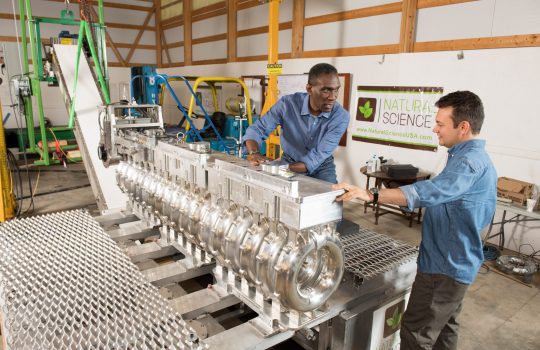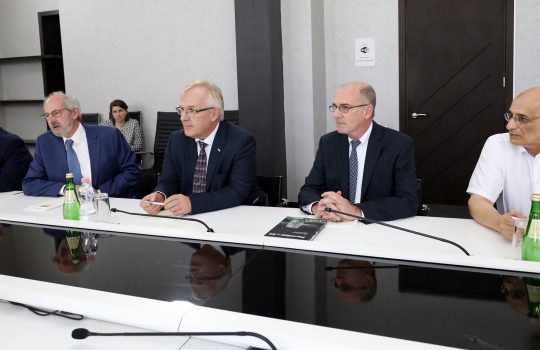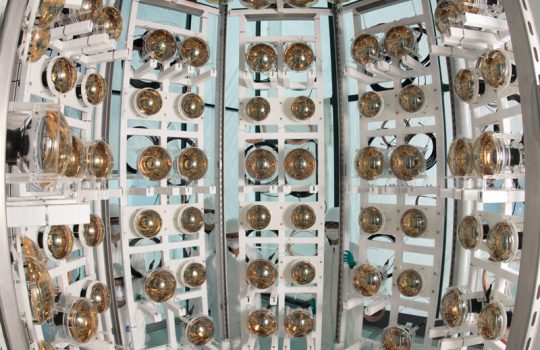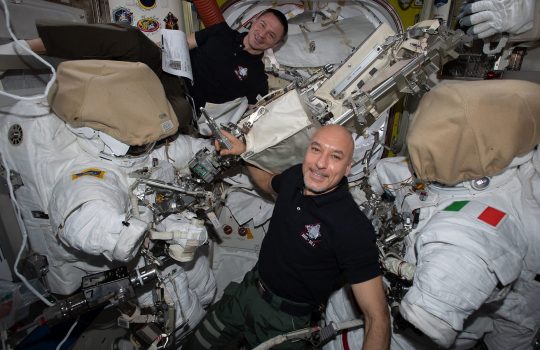Three physicists stumbled upon a striking mathematical discovery
From The Atlantic, Nov. 17, 2019: Describing neutrino oscillations is notoriously tricky. The search for a shortcut by Fermilab physicist Stephen Parke, University of Chicago physicist Xining Zhang and Brookhaven National Laboratory physicist Peter Denton led to unexpected places. They ended up discovering an unexpected relationship between some of the most ubiquitous objects in math.






